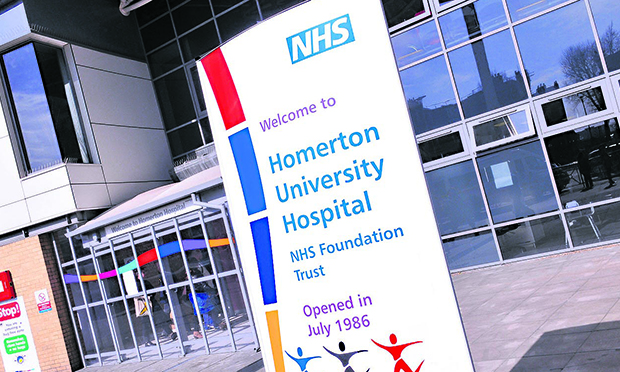Contentious pathology lab merger should make ‘no difference’ to patients, says Homerton Hospital

Patients should “not see any difference” in care following the recent and long-debated reorganisation of local pathology services, according to Homerton Hospital bosses.
The hospital recently merged with the Barts and Lewisham & Greenwich trusts to form the NHS East & South East London Pathology Partnership.
This move to regionalise pathology into a so-called ‘hub-and-spoke’ model has long been a source of concern for local activists, with Hackney Labour voicing its fears in recent years over the potential for delays and errors in treatment.
However, the Homerton has reassured patients that they “should not see any differences to what they had expected in the past”.
Chief executive Tracey Fletcher said: “Many of our pathology colleagues will continue to work on site at Homerton and, in due course, will be working in a much improved environment as we move forward with the creation of an essential services laboratory at the hospital.”
The partnership formally launched on 1 May, with plans for all laboratories across the three hospitals to operate as a single network by December 2023.
This network will operate labs at the Homerton, Newham, Queen Elizabeth, Royal London, St Bartholomew’s, Whipps Cross Hospitals, as well as University Hospital Lewisham.
It is understood that there were no redundancies as a result of the merger, with staff moved across under Transfer of Undertakings (Protection of Employment), or TUPE.
While warnings over a potential downgrading of the Homerton’s emergency department or even looming privatisation have not come to pass, local watchdog Healthwatch Hackney continues to have concerns.
Executive director Jon Williams said: “This is a change in service that we know pathologists have recommended is not necessarily a good move for patients.
“We remain concerned, in spite of assurances that patients will see no change, that the risk of moving any matter around more widely has a risk to it and may result in a poorer service. We would be interested to hear from patients who do have any issues around pathology assessments.”
Williams pointed to past warnings from the Royal College of Pathologists that such changes could undermine the quality of pathology.
Healthwatch has also spoken out over the importance of people with sickle cell anaemia, a condition experienced by many in Hackney’s African-heritage and Turkish communities, receiving quick responses to testing.
Announcing the changes, Tom Butler, who is the partnership’s clinical lead, said: “From shared learning and access to the latest testing technologies to professional development opportunities for staff and the resilience of more robust services, this partnership will bring many benefits to local communities and its staff, while keeping pathology testing within the NHS.”
The Homerton has stressed that in the planning phase for the partnership, quick turnaround tests required by A&E and specialist areas including maternity and paediatrics were “non-negotiable”.
A spokesperson also pointed out that many of its tests are moved around already, with Barts having run the Homerton’s histopathology service for several years.
Work is set to begin on the Homerton’s new Essential Services Lab (ESL) later this summer – news welcomed by council health chief Cllr Chris Kennedy.
Kennedy said: “It has always been my position to welcome the creation of the new essential services laboratory at the Homerton.
“I do have concerns that the new facility might employ less people than the existing one, but at the moment I am not aware that redundancies will be necessary.
“It is also my understanding that some types of tests for Homerton patients will move off site under the new arrangements and so I hope this new organisation will be able to demonstrate that all parts of the system will benefit from improved turnaround times.”
